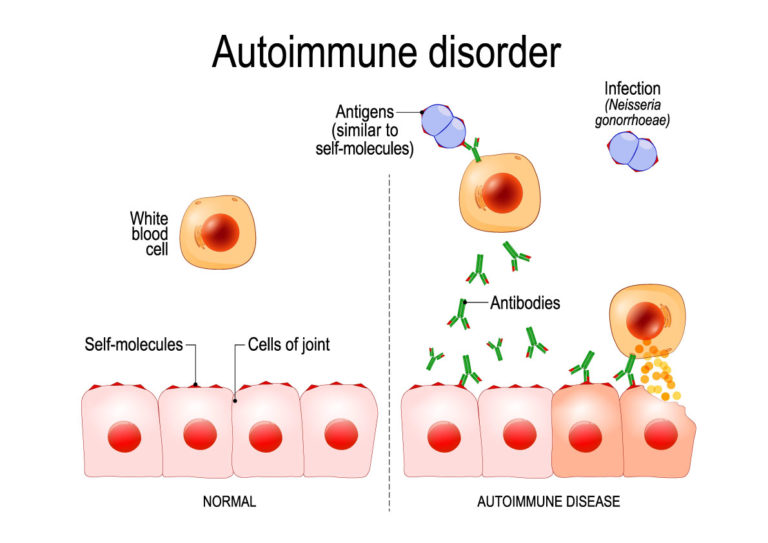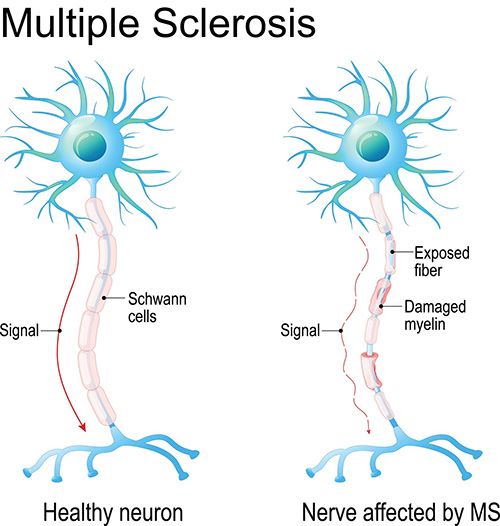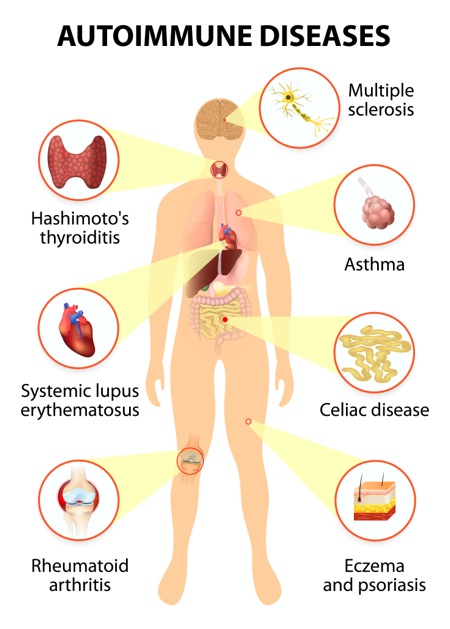Autoimmune Diseases Study Guide
Introduction
Your immune system defends you against disease and infection by combating microorganisms such as viruses and bacteria that enter your body. Because your immune system recognizes that the bacteria is not a part of you, it destroys them. When you have an autoimmune illness, your immune system recognizes healthy cells in your organs and tissues as harmful, and mistakenly destroys them.
What is an Autoimmune Disease?
There are about 80 different forms of autoimmune disorders. They occur when the immune system starts attacking the body itself, rather than attacking harmful pathogens. They can have an impact on practically any portion of your body. Here are some examples:
- Alopecia areata is an autoimmune skin disorder that causes hair loss.
- The immune system attacks the pancreas in type 1 diabetes.
- In rheumatoid arthritis, the immune system attacks many different areas of the body, including the joints, lungs, and eyes.
Types of Autoimmune Diseases
Type 1 Diabetes
Type 1 diabetes, also known as juvenile diabetes or insulin-dependent diabetes, is a chronic disease in which the pancreas produces very little or no insulin. Insulin is a hormone that is required for sugar (glucose) to enter cells and create energy.
Type 1 diabetes may be caused by a variety of reasons, including genetics and some viruses. Although type 1 diabetes commonly manifests itself during infancy or adolescence, it can manifest in adults.
Despite ongoing research, there is no treatment for type 1 diabetes. The treatment emphasizes controlling blood sugar levels with insulin, food, and lifestyle changes to avoid problems.
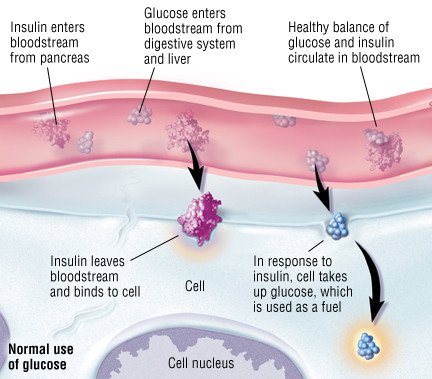
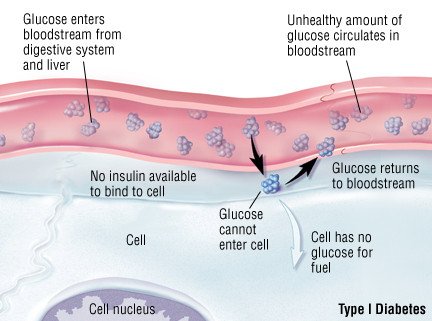
Rheumatoid arthritis (RA)
Rheumatoid arthritis is a chronic inflammatory condition that affects more than just your joints. The illness can harm a range of body systems in certain people, including the skin, eyes, lungs, heart, and blood vessels.
Rheumatoid arthritis is an autoimmune condition that arises when your immune system erroneously targets your own body’s tissues.
Psoriasis/Psoriatic arthritisPsoriatic arthritis is a kind of arthritis that affects certain people who have psoriasis, a condition characterized by red areas of skin covered with silvery scales. Most people get psoriasis years before they have psoriatic arthritis. However, for some people, joint issues arise earlier or simultaneously as skin patches.
The major indications and symptoms of psoriatic arthritis include joint pain, stiffness, and swelling. They can affect any area of your body, including your fingers and spine, and range in severity from moderate to severe. Disease flares and remissions can occur in both psoriasis and psoriatic arthritis.
Multiple Sclerosis
Multiple sclerosis (MS) is a potentially devastating brain and spinal cord illness (central nervous system).
The immune system assaults the protective coating (myelin) that protects nerve fibers in MS, causing communication issues between the brain and the rest of the body. The condition might eventually cause irreversible nerve injury or degeneration.
MS symptoms vary greatly depending on the extent of nerve damage and which nerves are impacted. Some persons with severe MS may lose the ability to walk independently or at all, while others may go through extended periods of remission without experiencing any new symptoms.
Systemic Lupus Erythematosus (SLE)
SLE is an autoimmune condition characterized by antibodies to nuclear and cytoplasmic antigens, multisystem inflammation, a wide range of clinical symptoms, and a recurrent and remitting history. More than 90% of SLE cases are diagnosed in women, and they typically begin while they are of reproductive age.
Inflammatory Bowel DiseaseInflammatory bowel disease (IBD) is a catch-all term for conditions characterized by persistent digestive system inflammation. The following are examples of IBD:
- Colitis with ulcers – This disorder causes inflammation and sores (ulcers) on the surface of your large intestine (colon) and rectum.
- Crohn’s disease – This kind of IBD is distinguished by inflammation of the digestive system lining, which frequently involves the deeper layers of the digestive tract.
Diarrhea, rectal bleeding, stomach discomfort, exhaustion, and weight loss are common symptoms of ulcerative colitis and Crohn’s disease.
Diagnosis of Autoimmune Diseases
Most autoimmune disorders cannot be diagnosed with a single test. Your doctor will use a mix of tests to diagnose you, discuss your symptoms, and a physical examination.
When symptoms imply an autoimmune illness, the antinuclear antibody test (ANA) is frequently one of the first tests used by clinicians. A positive test indicates that you may have one of these diseases, but it does not specify which one you have or whether you have one at all.
Treatment for Autoimmune Diseases
Treatments cannot cure autoimmune disorders, but they can moderate the hyperactive immune response and lessen or eliminate pain and inflammation. Among the medications used to treat these disorders are:
- Immunosuppressive medications such as ibuprofen (Motrin, Advil) and naproxen (Naprosyn) are examples of nonsteroidal anti-inflammatory drugs (NSAIDs).
- Various treatments alleviate symptoms such as pain, swelling, exhaustion, and skin rashes.
- Eating a well-balanced diet and exercising regularly can also help you feel better.
- Medication that reduces inflammation and calms the hyperactive immune response is the primary therapy for autoimmune illnesses.
- Treatments might also aid with symptom relief.
Autoimmune Disorder Symptoms
Many autoimmune disorders have similar early signs, such as:
- Fatigue
- Achy muscles
- Swelling and redness
- Low-grade fever
- Trouble concentrating
- Numbness and tingling in the hands and feet
- Hair loss
- Skin rashes
Conclusion:
- There are about 80 different forms of autoimmune disorders. Their symptoms frequently overlap, making the diagnosis of autoimmune diseases difficult.
- Women are more likely to have autoimmune disorders, and they frequently run in families.
- Blood testing for autoantibodies can assist doctors in diagnosing certain illnesses. Medication is used to quiet the hyperactive immune system and reduce inflammation in the body.
FAQs:
1. What are the most common Autoimmune Disorders?
Some of the common Autoimmune Disorders include:
- Rheumatoid arthritis
- Hashimoto’s autoimmune thyroiditis
- Celiac disease
- Graves’ disease
2. Can Stress and Anxiety cause Autoimmune Diseases?
Patients experiencing significant emotional reactions due to trauma or other life stressors should seek medical attention owing to the potential of these symptoms becoming chronic and causing additional health decline, such as an increased risk of autoimmune disease.
3. How can one reset the immune system?
Some of the tips to reset your immune system are as follows:
- Don’t smoke
- Eat a diet high in fruits and vegetables
- Exercise regularly
- Maintain a healthy weight
- If you drink alcohol, drink only in moderation
- Get adequate sleep
4. What foods are bad for autoimmune?
Foods items bad for autoimmune are as follows:
- Grains
- Legumes
- Dairy
- Some vegetable oils
- Coffee
- Eggs
We hope you enjoyed studying this lesson and learned something cool about Autoimmune Diseases! Join our Discord community to get any questions you may have answered and to engage with other students just like you! Don’t forget to download our App to experience our fun, VR classrooms – we promise, it makes studying much more fun! 😎
Sources:
- What is an autoimmune disease?. https://www.healthline.com/health/autoimmune-disorders. Accessed 30 Nov, 2021.
- Autoimmune Diseases. https://medlineplus.gov/autoimmunediseases.html. Accessed 30 Nov, 2021.
- Autoimmune Disease. https://flexbooks.ck12.org/cbook/ck-12-biology-flexbook-2.0/section/13.52/primary/lesson/autoimmune-diseases-bio/. Accessed 30 Nov, 2021.

